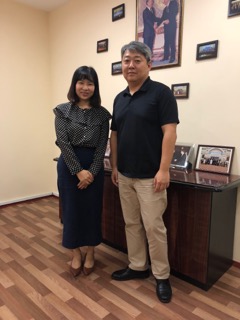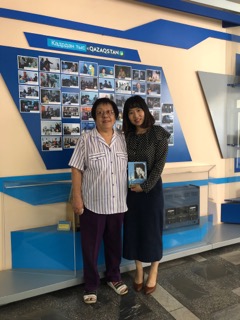現代インドネシアにおけるシビル・イスラム
対象とする問題の概要 現代インドネシアのイスラムは、人権や多元主義、宗教的寛容の尊重という自由民主主義の価値観から乖離しつつあると報告されている[Alexander 2018]。具体例として、中華系でキリスト教徒の元ジャカルタ州知事がイス…

After the collapse of the Soviet Union, Kazakhstan, as a newly independent nation-state, has made great efforts for the national integration of its multiethnic populace. It is the most important issue for the nation, which could pursue two incompatible methods of national integration: multiethnicism or, Kazakh-ethnocentrism.
The purpose of this study is to investigate how Kazakhstan Koryo-saram (Koreans), who became Kazakhstani citizens once the nation gained independence, have responded to the two methods of the integration and how their society has changed. In my fieldwork, I conducted interviews with representatives of the main institutions of Kazakhstani Korean society, such as the Association of Koreans in Kazakhstan, the editorial office of the Koryo Ilbo (a Korean-language newspaper), the Korean television and Korean radio station, the Korean Cultural Center, and the Almaty branch of the Assembly of People of Kazakhstan.

My research yielded two findings. The first is that the current activities of the Koryo-saram provided insight into the direction of their activities in the past, present, and future. The second is about identity of the Kazakhstan Koryo-saram. By examining trends within the community, we can see that the Kazakhstani Koryo-saram are building their identity as a part of the Kazakhstani nation, while at the same times as one of the minority groups in a multiethnic Kazakhstan. The community can be compared to Koryo-saram societies in other former Soviet areas where Koreans moved to seek a better environment.
It would be necessary to examine the factors that make up the identity of the Kazakhstani Koryo-saram and to compare them to those of the Koryo-saram in other former Soviet areas.
Copyright © 附属次世代型アジア・アフリカ教育研究センター All Rights Reserved.